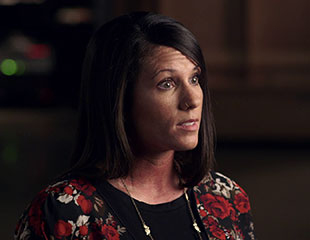Strength in Numbers: Lessons Learned in Veterans Group Therapy
3-minute read
Strength in Numbers: Lessons Learned in Veterans Group Therapy
3-minute read
The military community prides itself on its closeness and camaraderie — its strength in numbers. But Veterans transitioning into civilian life after military service may be surprised to find themselves without the system of support that they have come to know and rely on.
These transitions may involve resuming unfamiliar responsibilities, like child care. “I went from being an active duty Marine to being a stay-at-home dad overnight,” recalls Daniel, a U.S. Marine Corps Veteran. “And it was rough because I didn’t have any resources. I didn’t have any friends, family — nothing around.”
It can feel even worse when civilian family members and friends unintentionally put Veterans in an uncomfortable position trying to describe their time in the service. “When I would talk to my friends after coming back, you know, they’d want to hear stories,” says Marie, an Army and National Guard Veteran. “And a lot of times I would say stuff like, ‘Oh, well, it’s too hard to explain.’”
Sometimes Veterans also are dealing with unresolved issues, like trauma they experienced in the military. “I wasn’t the same happy-go-lucky person I was, you know,” says Hodari, a U.S. Army National Guard Veteran. Kelly, a Marine Corps Veteran, says: “I had an anger issue from that point, and that’s how I dealt with my feelings.”
Once they recognize these difficulties, many Veterans seek therapy to help ease their transitions.
A First Step to Recovery
The typical image of therapy is a one-on-one session between a counselor and a patient. But there are many forms of therapy. While individual treatment can be effective, some Veterans might be better suited to group therapy or could benefit from combining group therapy with their individual therapy sessions.
As described by the American Psychological Association, group therapy involves a group of people, led by a trained psychologist, who meet to work on a specific condition like depression, PTSD, or a substance use disorder. Some people attend individual sessions along with group therapy, while others participate only in the group sessions.
Unfortunately, some Veterans hesitate to seek mental health treatment at all and may be even more reluctant to share personal feelings and challenges with a group of strangers. As Kelly recalls, “I didn’t want to go to group therapy: ‘I don’t care what everybody else went through. And they don’t care what I went through.’”
Such resistance is common. But for those willing to push through their initial discomfort, group therapy can provide many benefits. “I went back a second week just to see, give it a little bit more of a chance, and it turned out to be the best decision that I had ever made,” Kelly says.
Strength in Numbers
Group therapy is about sharing your experience in a safe and supportive setting. Veterans can talk about their issues with people who are — or have been — in similar situations. The act of sharing and listening to other people’s experiences, and the feeling of being understood by others, is a powerful treatment.
“When you have other people who have been through the same things you’ve been through, and who have dealt with them in all different kinds of ways, it helps you in immeasurable ways,” says Daniel.
Most important, group therapy can help relieve the feeling that you are the only one who is grappling with tough challenges. “I didn’t feel like it was just me dealing with my issues. It was, ‘Hey, we are all dealing with these issues,’” says Marie. That realization can be a starting point for recovery.
Lasting Benefits of Group Therapy
The effects of Veterans group therapy far outlast the sessions themselves. Expressing your feelings and helping others overcome their difficulties improves your ability to understand others and, ultimately, yourself.
“It helps me at my workplace. It helps me at my church. It helps me in the community,” says Hodari.
In addition, therapy forges bonds between a group of people, creating a support network that Veterans can rely on as they continue on their path through civilian life. “I still talk … on a daily basis with women that were in the women’s group with me,” says Kelly.
There is still strength in numbers.
“Our group therapist always told us, ‘You want to surround yourself with people that are at the same mental level as you,’” Kelly says. “And so, being around other people who want to better themselves pushes you to want to be a better person.”
Learn more about the types of treatment available to Veterans or find a program or treatment center near you.

